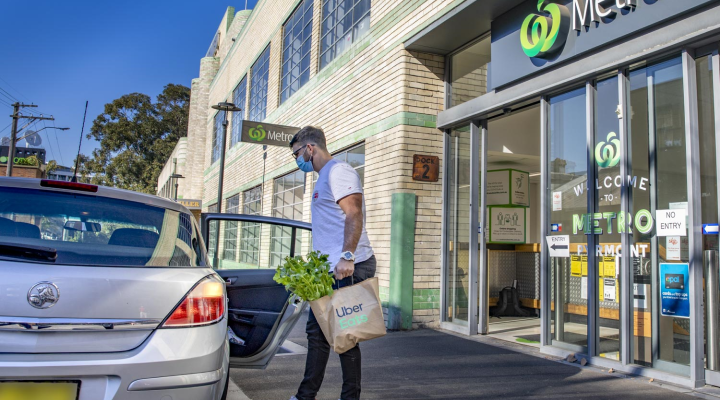Months of negotiations between Uber Australia and the Transport Workers Union (TWU) have resulted in a landmark agreement for the gig-worker economy revealed today.
The two parties have agreed on minimum standards and benefits for drivers working for both the ride-hailing service and the UberEats delivery service.
This is the first time a platform company in Australia has struck a deal with a union across both the rideshare and food delivery industries and is the result of months of detailed discussions. A key part of the deal is that Uber and the TWU support Federal Government legislation for an independent body tasked with creating industry-wide standards covering drivers. :
These include minimum and transparent enforceable earnings, benefits and conditions for platform workers, a cost-effective and efficient mechanism to resolve disputes, the rights of platform workers to join and be represented by a union, and enforcement to meet these standards and objectives.
“The Principles we signed today are a significant and positive development in the years-long campaign led by gig economy workers to modernise out-of-date industrial laws,” said the national secretary of the TWU, Michael Kaine.
“For too long, the balancing of flexibility and the enforcement of strong workplace rights and protections has been seen as a zero-sum game.”
Today’s announcement follows a joint statement back in February when Uber and the International Transport Workers’ Federation (ITF) – of which the TWU is an affiliate – agreed to begin a dialogue on working conditions for drivers and couriers globally.
Acknowledging his company and the TWU might not seem to be natural allies, Uber Australia GM Dom Taylor said Uber has “always agreed that driver and delivery partners must come first”.
“Today we have struck this important deal to improve workers’ protections.
“The TWU and Uber today endorse a strong regulatory solution to put the debate to rest: an independent body to establish universal earnings protections and minimum standards that will support flexibility, safety and security across the on-demand industry. These principles, endorsed by our gig worker committee, set a path toward a gig economy that’s safer, more sustainable and less volatile for all industry participants.”
Kaine welcomed Uber’s “constructive cooperation” and looks forward to ongoing negotiations to deliver reforms gig workers “desperately need”.
“Today’s agreement sends a strong signal to the newly-minted Federal Government that it must act to deliver gig companies regulatory certainty and extend appropriate safeguards to workers across the gig economy.”
Uber Eats GM Bec Nyst said the framework of the agreement recognises platform work as an important and unique flexible earnings opportunity. “We want to see these opportunities continue to grow and at the same time raise the bar for platform work.
“We are always looking at ways we can improve the earnings experience on Uber and this agreement with the TWU will help us ensure platform workers can enjoy the flexibility to earn, underpinned by greater benefits and protections.”







